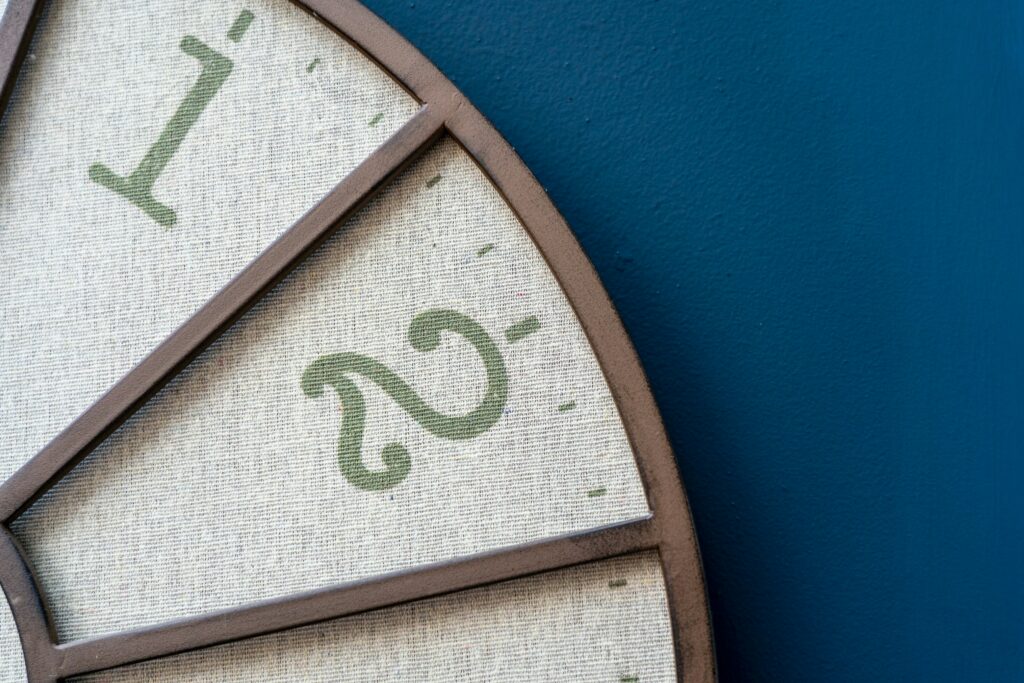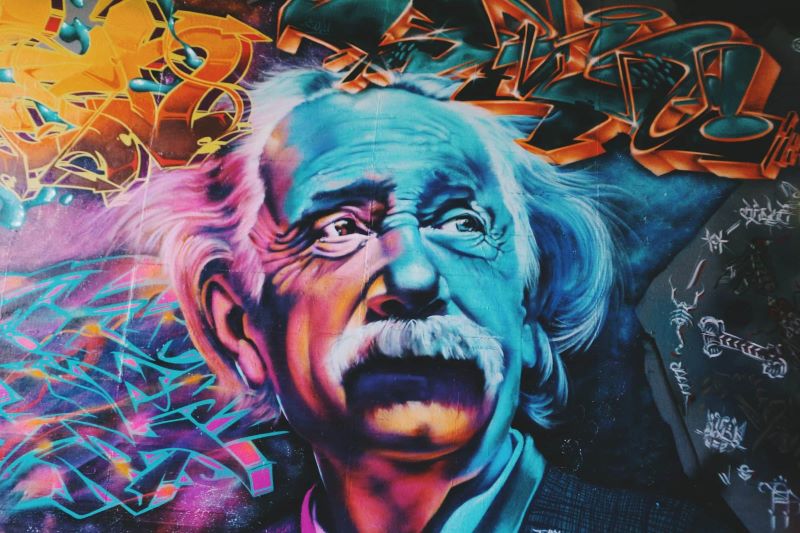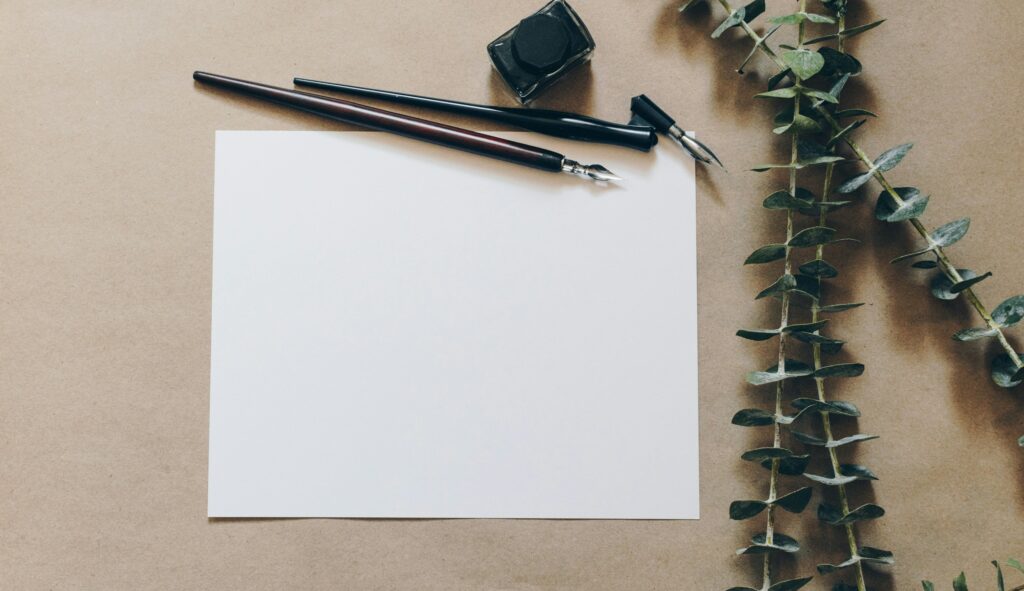In this guide, we dive into the details of writing acknowledgement in research paper.
You’ll learn the nature of this section in your paper, understand its purpose, and get actionable tips on whom to acknowledge (and how to do that) in your research.
Ready to go?
Here’s how to write an acknowledgement for research paper:
Table of contents
Acknowledgement in Research Paper: Definition
Dictionaries describe “acknowledge” as “recognizing the significance of someone or something.”
So:
What is acknowledgement in a research paper?
It’s a section of your work where you thank the people and resources that helped you in your research process. See it as an opportunity to show them you appreciate their guidance, assistance, and support with your scientific endeavors.
Typically, the Acknowledgements section is one paragraph long. But:
This guideline isn’t a must, given this section goes beyond your academic content and serves more as a personal gesture of recognition for your mentors, colleagues, and peers. Check the instructions for your assignment to see if there are any formatting specifics you should follow.
| Need help with titles or topics for your research paper? Try our free resources: A title generator for essays and a prompt generator will break your writer’s block and fuel your thought flow. |
Purpose: Why Acknowledge Someone in Your Paper
Acknowledgement in research paper provides credit to people and organizations who contributed to your project. Not only is it about gratitude for their assistance, but it’s also about academic integrity:
- You refer to all contributors, thus preventing any potential issues related to plagiarism.
- You demonstrate that your paper is a collaborative effort contributing to academic society.
The Acknowledgments section of your paper is an instrument to build professional relationships and encourage future collaborations with specialists participating in the research. Write acknowledgements to respect their input and strengthen the credibility of your academic work.
Whom to Acknowledge in a Research Paper
Ensure that you mention all the right people and institutions in your acknowledgement for research project.
For people, recognitions go to those contributing their experience, expertise, guidelines, and wisdom: mentors, research advisors, editors, other researchers in your field, peers, students, or research assistants.
For organizations, your acknowledgements can go to funding sources, universities, laboratories that have provided equipment for your research, institutions that have run the study and managed data, etc.
Here are some examples of those whom you might mention:
| Mentors and supervisors | These are people who guided you through the research process, showed you how to write a process essay, and provided their valuable insights: mentors, academic advisors, and project supervisors. |
| Colleagues and peers | They are people who contributed their ideas and resources for your project or helped with all the related tasks: fellow researchers, lab mates, co-authors, etc. |
| Professional networks | These are experts who referred you to credible resources for your research, shared their advice on the subject, and provided other networking opportunities to make your research more insightful. |
| Research participants | If your research involved interviews, surveys, questionnaires, and other data collection, you can thank the people who participated. |
| Editors | These are experts who reviewed your research paper, offering feedback on its structure, clarity, and overall readability: editors and proofreaders. |
| Institutions | These are companies, universities, and laboratories that helped with equipment, workspace, and other resources to assist the progress of your research process. |
| Funding sources | These are financial supporters of your research: grants, scholarships, individual fundraisers, and everyone who made your research project possible. |
Important: Get approval from the people to include them in your Acknowledgements section. Ensure that they agree with your research and its results and that they don’t mind you mentioning them in your paper. For that, let them read your paper and acknowledgement notes before submitting it for the professor’s or publisher’s review.
Acknowledgement in Research Paper Isn’t for Everyone
Some guides on writing an acknowledgement in research paper also suggest mentioning your family, friends, or others who provided encouragement and emotional support throughout your research project.
We disagree.
We recommend you consider such personal acknowledgements only if you have a special reason to do so. (For example, if those people did something directly to help you.) The same goes for people whose participation in your research was part of their job: lab technicians, lab directors, heads of departments, field assistants, etc. You can mention them if they did extra work (beyond their regular duties) to help you.
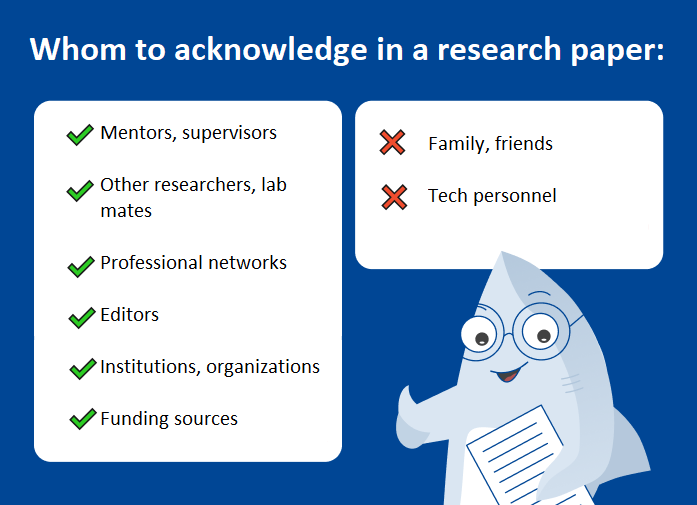
How to Write an Acknowledgement for Research Paper
Acknowledgements don’t have a strict structure or format like essays or other academic papers. They are an element in your paper’s structure, so write them as a standard paragraph. In case of lengthy acknowledgements, when you need to thank many different people and institutions, feel free to craft 2-3 paragraphs of acknowledgment in your work.
And now, to details.
Here’s how to write acknowledgement in research paper:
Types of Acknowledgement
First, decide on the type of acknowledgement for your paper. Based on whom you’ll mention and gratitude for help and support, these types are four:
- Formal (Use a formal tone to write it to recognize people or organizations who provided financial and technical support to your research.)
- Informal (These include acknowledging your friends or family members who helped with the project. Here, you can use a more personal tone, like the one you learned about for writing an application essay in our essay, how to write a scholarship essay. Refrain from this type if your dearest didn’t contribute anything direct to your research: Emotional support is good, yet it has nothing to do with the formal academic world.)
- Professional (This acknowledgement for research project goes to your colleagues, mentors, and assistants.)
- Collaborative (Here, you recognize the collaborative nature of your research, giving thanks to your co-authors and other researchers contributing to your project.)
The Acknowledgements section of your paper can include all four types, depending on how deep the research was and how many people and organizations contributed to it.
Writing Tips to Follow
Acknowledgement writing is easy-peasy if you follow the only rule:
Sincerity and authenticity.
Write your acknowledgement in research paper with a genuine appreciation for the contributions and support you received throughout the process. Remember to mention all collaborators and assistants.
The below writing tips will help you craft a stellar paragraph(s) with acknowledgements.
- Identify key figures to mention in your paper and list them to prevent unintentional forgetting. You can craft two lists: for people (mentors, collaborators, advisors) and institutions (funding agencies, laboratories, universities, councils, etc.)
- Remember about ethical guidelines and norms. Get approval from those you plan to recognize in your research and respect the privacy of those unwilling to be mentioned.
- Check the formatting guidelines, if any, from your college or the online publication you intend to submit your research to. Ensure that your Acknowledgements section (and overall research paper) follows the required format.
- Maintain a professional tone. This section is about formal recognition, not a casual conversation. Please avoid using over-emotional language.
- Be concise and specific. What exactly did these people or organizations do for your research? How did they help? Avoid lengthy paragraphs with flowery and generic gratitudes; keep the section relevant and brief.
- Avoid self-promotion. Don’t praise yourself or your organization in the paragraph with acknowledgements.
- Proofread and edit. Once your acknowledgements are ready, re-read them several times to revise and correct any errors or typos. You can also scan your text via an AI checker to secure it from AI text patterns and “robotic” tone of voice.
Mistakes to Avoid When Writing Your Acknowledegement
The most common mistake young researchers make when crafting the Acknowledgements section of their research paper is flowery language.
Intending to sound heartfelt, authentic, and sincere, they stuff the paragraph with phrases like, “huge thanks go to,” “I’m indebted to,” “eternally grateful,” “we couldn’t have done it without,” etc. If your draft consists of such phrases, eliminate them. Keep your English simple and straightforward.
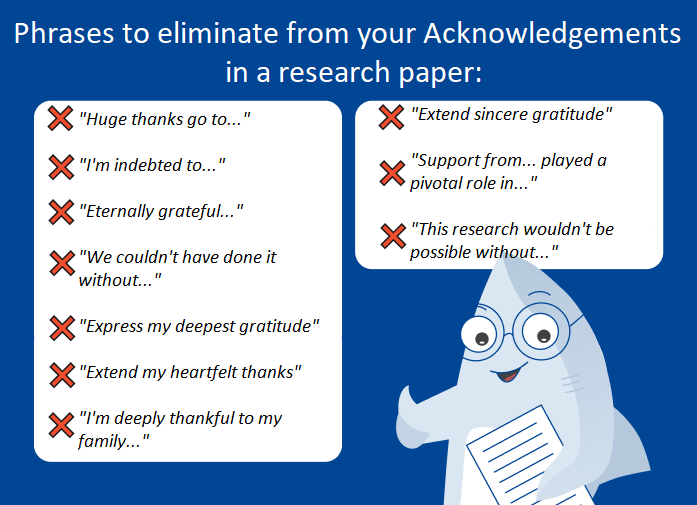
A research paper acknowledgement in research is more formal than personal. While some cases allow appreciation beyond formal requirements, depending on the field and nature of your study, mind your tone and strike a balance: warm, not over-sentimental; confident, not cocky; friendly, not obsequious.
Tip: Match the tone of the rest of your research paper.
Another mistake is about language again — vague language.
Chasing for a particular word number in their work, some researchers rely on empty phrases, redundant adverbs, or wordy constructions when simpler (and shorter) alternatives would suffice. Brevity is your weapon here.
The other mistakes to avoid in your acknowledgements:
- Forgetting to thank someone essential for your project (It may happen in the rush to finish, so be sure to list and double-check all key contributors in advance.)
- Over-thanking and making your Acknowledgements section too long (Don’t turn this paragraph into an Oscar speech an orchestra shuts up with music. It’s not about thanking everyone you know. Keep your acknowledgement meaningful: Lengthy praise for too many names dilutes the significance of the gratitude itself.)
- Listing people and institutions chaotically (Move from formal acknowledgements to more personal ones to give readers a logical order and prevent confusion on who is who and what they did for your research.)
- Ignoring the proofreading phase (You mention numerous names, roles, and organizations in your paper, so it’s easy to make a typo or attribute a wrong position to someone. A name check, fact check, and spell check are a must here.)
Last but not least:
Don’t focus too much on personal stories or anecdotes in your Acknowledgements section. Keep it relevant to the research project, and don’t overload it with unnecessary details on how and why someone assisted you; saying what they did is sufficient.
Acknowledgement Example for Research Paper
Now, we are gonna share two examples of Acknowledgements in research papers. One is bad and full of mistakes. This is for you to see how not to write yours. Another one is a worthy sample for your acknowledgement.
The lousy example goes first:
“I extend my sincere gratitude to the individuals and organizations whose support and collaboration have been fundamental to completing this research endeavor.
Special thanks to Dr. Smith, my dedicated advisor, for his unwavering guidance, insightful feedback, and continuous encouragement throughout the research process. His expertise and commitment to academic excellence have been instrumental in shaping the trajectory of this study. Also, I want to give a huge thanks to my parents for supporting my education; I couldn’t have done it without your love and support. A special thank you to the lab assistants for scheduling the interviews. I’m eternally grateful to the head of my department, Dr. Simmons. Finally, a tiny thanks goes to the protagonist of the movie Alien for sparking my creativity.”
Why is the above example bad?
- Unacceptable flowery language (“a huge thanks,” “I couldn’t have done it without,” “special thank you,” etc.) The author might want to revise it, using a paraphrasing tool online, for the text to sound more formal and professional.
- Thanking individuals who are not appropriate (parents, lab assistants, a head of department, and even a movie character!)
And now, to the acknowledgement example for research paper that is strong and good enough to consider as a sample to use for your own work:
“The authors thank Dr. Darcy for advice on experimental design and subject recruitment strategies. We are grateful for the thoughtful manuscript reviews by Minerva McGonagall of Caltech, John Snow of the University of Colorado, and Elizabeth Bennet at the Southwest Research Institute. We thank the National Science Council for its financial support for the fieldwork. This study was supported by a grant (DOH-XXXX-X) from the Department of Health (DOH). The Center for Survey Research of Academia Sinica was responsible for data management. Fig. 15 was produced using stereo software developed by Harry Potter.”
Why is the above example good?
- Stellar sentence structures
- Names, roles, and institutions named properly
- Concise and up-to-point paragraph
- No lengthy thanks with flowery language or sophisticated, vague phrases
FAQs on Acknowledgement for Research Project
No mood or time to read the entire guide? Below are the answers to the most frequently asked questions on the topic:
What is an acknowledgement in research paper?
Acknowledgement is a section in your research paper where you recognize and credit the people, institutions, and resources that contributed to and supported your research project during the process. It goes beyond your academic content, is concise, and can be less formal than the overall tone of your document.
Why should I add this section to my academic work?
The purpose of the Acknowledgements section is to recognize the collaborative nature of your project and give proper credit to all the participants (to ensure academic integrity and give praise where praise is due).
How do you acknowledge a person in a research paper?
State their name, role, and contribution to your research project. There’s no need to tell stories about how you met or decided to collaborate on the research. You can express personal appreciation, but follow the formal tone, be to-the-point, and remember, before acknowledging someone in your research, ask them if they agree to being mentioned. (Respect their privacy.)
Whom should I acknowledge in my work?
Acknowledgements express recognition and gratitude to mentors, advisors, other researchers, funding agencies, institutions providing equipment and resources, and anyone else significantly contributing to your research. Refrain from mentioning your friends or family members unless their input directly helped the project (versus indirectly – i.e. provided emotional support).
How long should the Acknowledgement section of my research paper be?
Aim for a single extended paragraph. Start with formal acknowledgements and move to more personal ones. If you have several types of acknowledgements (professional, collaborative, informal, etc.), feel free to write a few paragraphs for a logical and coherent flow.
Whom Will You Acknowledge in Your Research?
Now you know how to write the acknowledgement in research paper! We did our best to make this guide informative, yet to-the-point so that you understand the purpose and nature of this section in your academic paper. In short:
- Recognize and credit all key individuals and organizations who contributed to your research.
- Keep the Acknowledgements section short, straightforward, and clear; avoid vague words, lengthy phrases, and flowery language.
- Double-check names, titles, and positions to prevent typos and misinformation.
Should you have questions or concerns about your academic assignments, you can contact our writers and get professional help anytime.
Photo by Kelly Sikkema from Unsplash


